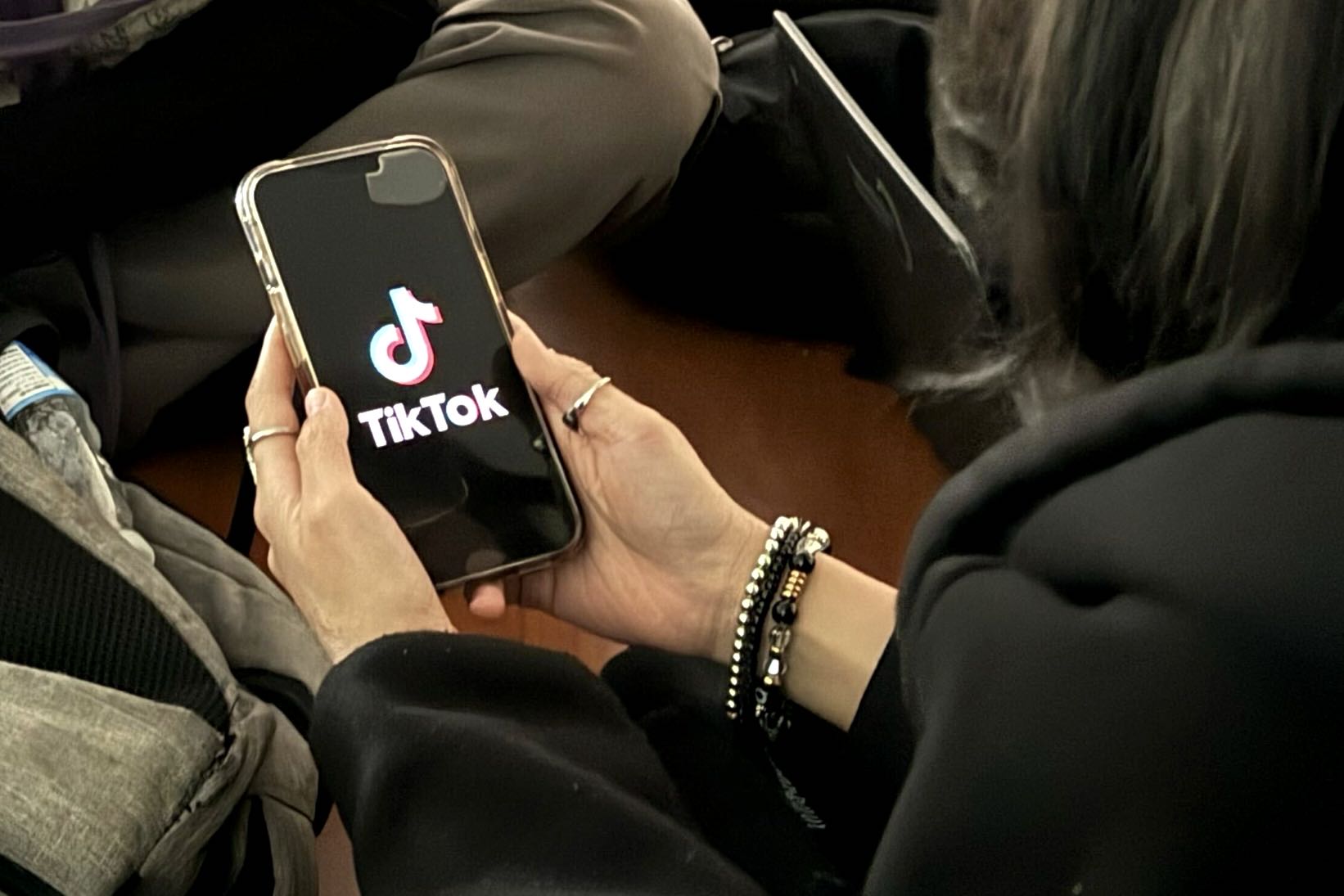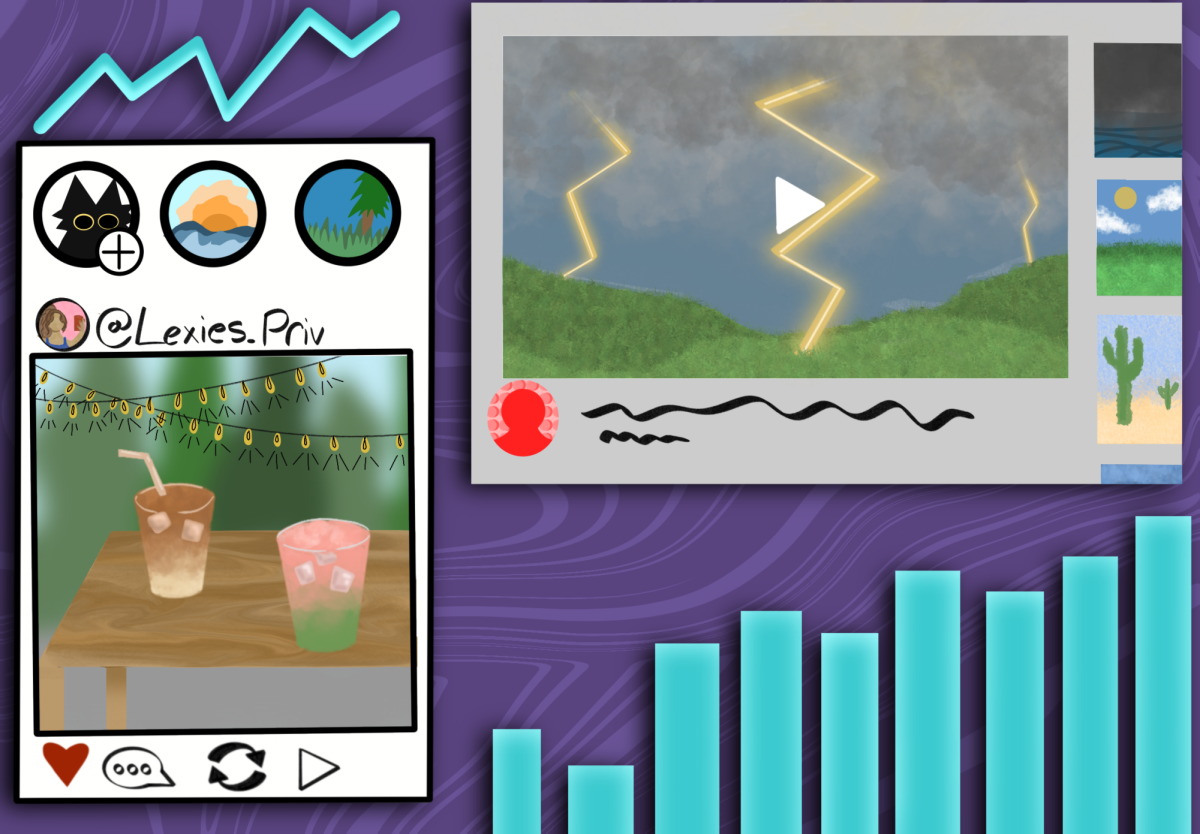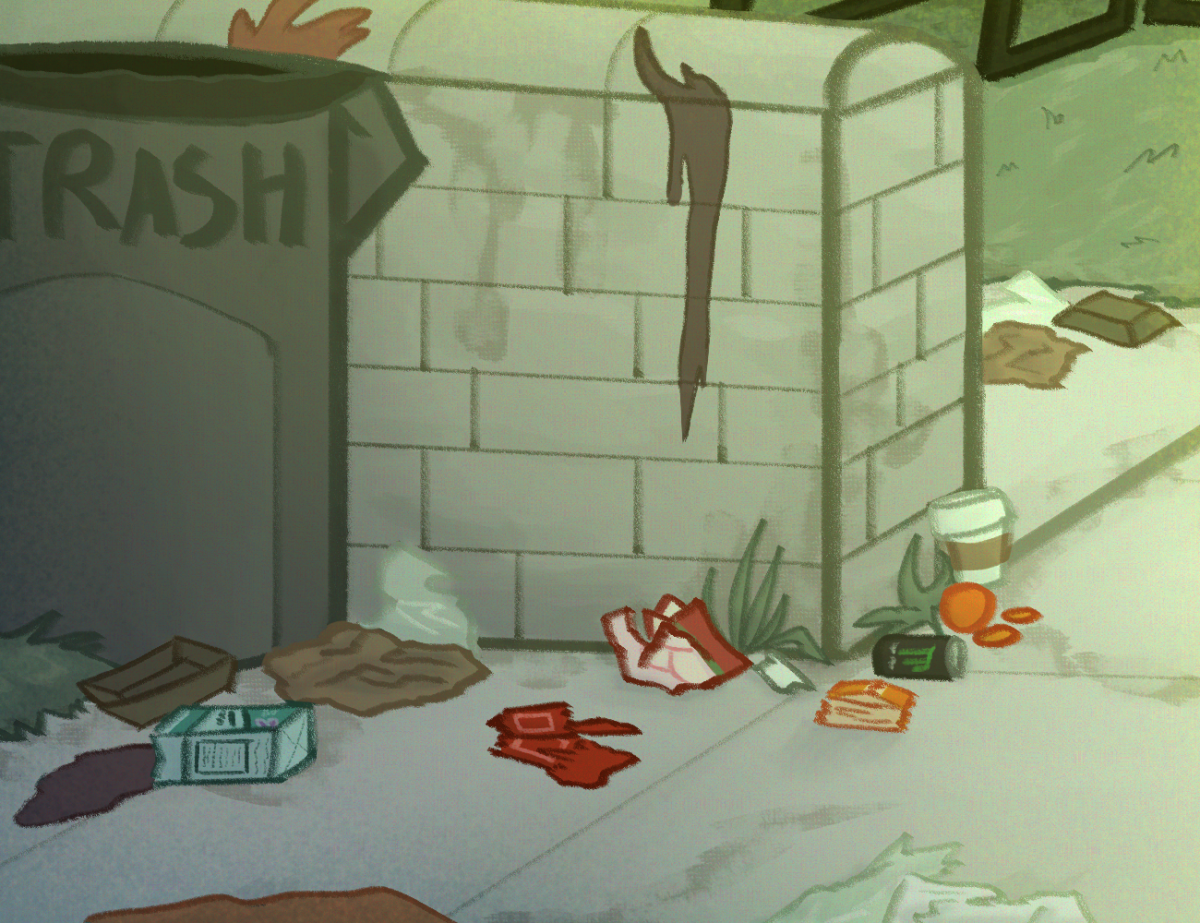Opinion: Potential ban on TikTok

On March 13, 2024, the House passed a bill that could potentially ban TikTok in the United States, sending it to the Senate for a vote. The main reason for this potential ban is that, currently, TikTok is run by a China-owned company called ByteDance. In an article on the potential ban by NBC News, it was said that “TikTok could be used to access American data and spread ‘harmful’ information.” What the Senate wants is for ByteDance to sell to an American company, otherwise they will ban Tiktok in the U.S.
The debate over TikTok’s ownership and usage in the U.S. Congress is a largely geopolitical one. Foreign relations between the U.S. and China have been strained over international commerce and ideological differences between the United States’ democratic and China’s communist values. American lawmakers supporting the ban have raised suspicions of TikTok’s proximity to the Chinese government, despite its headquarters outside mainland China and what that could mean for millions of users’ personal data, given the U.S.-China tensions. Lawmakers warning against the ban have cited censorship and a loss of a growing economy.
There are many ways we can look at this issue, from multiple standpoints. On the one hand, one might argue that TikTok has been a beneficial tool to its generation, as well as a platform like no other. However, many other apps, such as Instagram, Snapchat and YouTube, have recently added the quick scrolling feature, or reels, that so many people use. These platforms are also U.S. owned, which is the main difference between them and TikTok.
But should the government really be focusing on a harmless app, when there are much larger issues at hand? Foothill Technology High School (Foothill Tech) teacher Brooke Johnson argues that, “This country has bigger fish to fry than social media sites.” The homelessness crisis, carbon emissions and abortion laws are just a few of the many issues that Americans face in this country, and focusing all our efforts on an app just seems unreasonable.
TikTok, like any other online platform, requires users to input certain personal information to create an account. Regardless of any website, online account creation with seemingly harmless information like phone numbers and email addresses automatically puts at risk important accounts linked to the same credentials. When personal information is obtained in a cyberattack or data leak, personal resources, like bank accounts, can be accessed without permission and become susceptible to fraud.
Forgotten online accounts tied to personal information are often referred to as “zombie accounts,” and according to Maile McCarthy on strongdm, they “open the door to bad actors looking to insert malware, steal data and damage your internal systems.” Though the risk of data leaks is present anywhere on the Internet, lawmakers’ concerns are largely because they have no guarantee that user data is being stored safely and reliably due to TikTok’s parent company using third-party data trackers on the app. If the ban is passed, having one less online database of personal information will certainly put many at ease about their sensitive information.
Furthermore, TikTok’s quick videos are not only successful for marketing and creative media, but notorious for their addictive and suspiciously easy-to-use interface. When studying the design choices of popular online apps, one thing psychologists and web designers can agree on is that TikTok’s user interface is designed to be a time trap. ”I think that it’s deteriorating attention spans to some degree. In depth learning doesn’t happen like this, in depth learning happens through long form media,” Johnson pointed out.
With how easy it is to sign up, start posting videos and scroll through your feed, social media can become an addiction. In a previous article by Jane Kim ‘26 on the Foothill Dragon Press, “Excessive use of social media can cause teens to develop ‘addictions,’ which only lead to further detrimental effects on the quality of life. Yale Medicine stated, ‘exposure to social media can overstimulate the brain’s reward center and when the stimulation becomes excessive, can trigger pathways comparable to addiction.’”
According to Exploding Topics, “people under the age of 18 spend an average of 1 hour 47 minutes on TikTok every day.”. The same is true for some Foothill Tech students. Makenzie Gamble ‘26 spends about “two to three hours” each day on TikTok.
While the variety of content and vast potential for inspiration may be missed on TikTok, it is certainly worth considering its effects on real-world resources as well as how it affects youth development.
The 30-second video format TikTok has contributed is one of the internet’s greatest successes for digital media and self-expression. From sharing quick recipes, highlight reels for sports recruiting, outfit and style inspiration, quick news coverage and cute animal videos, there certainly is something for everyone on the app. Completely new careers have been created thanks to TikTok, such as social media influencers. While “influencing” includes everything from filming outfit montages in one’s bedroom, interviewing people in public on a variety of topics or participating in dance trends to popular songs, these follower-gaining strategies can pave the way for lucrative brand deals and sponsorships previously done by traditional entertainment celebrities. Furthermore, with rising college costs and increasing disinterest in the college-to-corporate job pipeline, turning 30-second videos into cash certainly has widespread appeal to younger audiences.
Users also claim that TikTok’s comment sections are more positive than those of other apps — likely combed through more thoroughly with stricter filters on negative commentary.
If the ban is enacted, small businesses and individual creators will be hit hardest. Clay jewelry, crocheted apparel, vinyl stickers and customized drinkware are some of TikTok’s best selling handmade gifts, and for many artisans, their online storefront isn’t just a side hustle, but a full-time job.
Lawmakers opposed to the ban are concerned about censorship, not only because of the quick news cycle TikTok has propagated, but the greater commentary users provide to piggyback off news reports. Young adults are reporting higher rates of receiving news coverage on TikTok— with estimates ranging from 80 to 100 million monthly users, many would certainly cry foul at a ban.
As a platform, TikTok is mainly used for entertainment and creativity purposes. Scarlet Palmieri ‘27 said that she likes “seeing book [and show] recommendations.” TikTok can be a very positive place for people to easily connect over common interests. But at the same time, TikTok can also be a source of news. While not always reliable, many claim to have learned more from informational videos on TikTok than in certain classes at school, and shutting it down would just be cutting off some people from where they solely get their information.
Whether ByteDance sells TikTok or its ban knocks it off American devices for good, there are many pros and cons to its banning. While users may lose a creative outlet that some may need in terms of mental health and connection, banning TikTok could ultimately reduce screen time, and the never-ending scroll that many people face when using the app. Regardless of whether or not TikTok is considered to be a net positive or a bad influence, it will certainly be missed by its many users and content creators.














